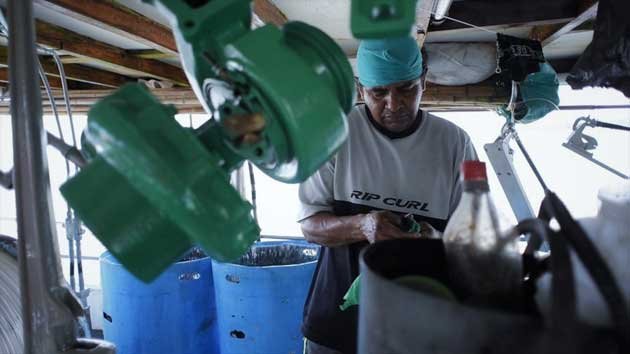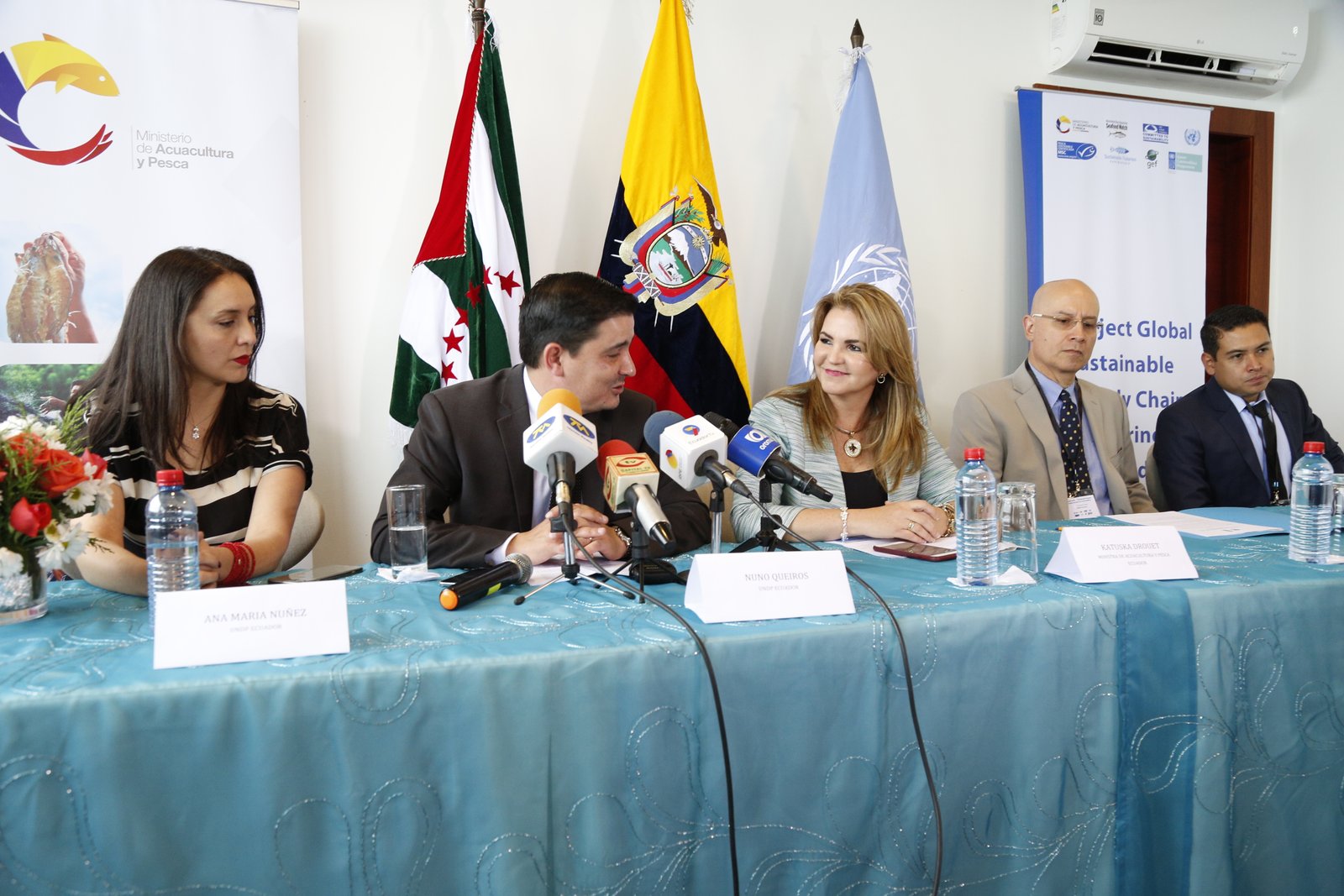Costa Rica: first country to protect sustainable fisheries of large pelagics species
Large Pelagic National Action Plan Launching – Costa Rica
Twelve years ago, in a restaurant in Puntarenas on the pacific coast of Costa Rica, a group of long line fishermen met with three UNDP conservation specialists.
The conservationists wanted to understand how best to avoid illegal fishing inside Cocos Island Marine Protected Area, located off the shore of Costa Rica and now a UNESCO World Heritage site.
As part of their stakeholder engagement strategy, they decided to meet longline fishermen for dinner. It didn’t turn out quite as they had hoped – not many hands were shaken after dessert.
There was one table but two very different perspectives. The UNDP personnel were working on a project which saw illegal fishing on Cocos Island as a conservation issue. On the other hand, the group of local entrepreneurs from Puntarenas were challenged by depleted resources and closed markets. Though some of them were indeed responsible for illegal fishing, none were big businessmen with major ambitions, but rather owners of a couple of long line vessels trying to make a living — with little access to credit and paying the highest social security costs in the region for every member of their expeditions.
The prospect of UNDP supporting the government to further restrictions on their livelihoods, was not taken lightly. A lot of mistrust turned the food, and the mood, sour.
Large Pelagic Fisheries Costa Rica
Together with the families that depend on this activity, the affected population reaches between 10 to 16 million people and this is without including those indirectly linked through the thousands of other indirect jobs which ensure fishing activity such as transportation, fishing supplies, food, mechanics, and others.
Fast forward to the present day and twelve years later, the perspectives of both the conservationists and the fishermen have changed. Last November, not far from that restaurant in Puntarenas, Costa Rica was the first country in the world to launch a National Action Plan for sustainable fisheries of large pelagic species, using UNDP’s methodology.
Through the Ministry of Agriculture and Livestock (MAG), the Ministry of Environment and Energy (MINAE), the Costa Rican Institute of Fisheries and Aquaculture (INCOPESCA) and the support of the United Nations Development Programme (UNDP), the country officially presented a plan with three main areas of work: improving the fisheries of large pelagic species in Costa Rica such as tuna, swordfish and mahi mahi; increasing the supply of seafood from sustainable sources and ensuring the social welfare of the people linked to the fishing activity.
During the presentation of the plan, one of those same sector leaders from the restaurant took the opportunity to approach the same UNDP staff member he met all those years ago and said to him, “I wanted to thank UNDP for the trust it has given us and for helping us build a formal plan with institutions”.
A clear victory for UNDP’s firm confidence and strong commitment to multi-stakeholder dialogue as the key element to achieve systemic change for sustainable commodity production.
A model case study of successful convening and collaboration between different stakeholders, it is the result of a process of dialogue lasting twelve months and involving more than one hundred representatives of government, academia, civil society, international cooperation, fishermen, exporters, restaurants and supermarkets.
A group of people who were not likely to be happy in same room a few years ago but are now committed to working together towards a more sustainable, inclusive and promising future for Costa Rican fisheries.
Through 2019, we celebrate ten years of UNDP supporting multi-stakeholder approaches to the sustainability challenges of highly-traded commodities around the world.
Through the Green Commodities Programme, UNDP’s approach has been to build trust among stakeholders by facilitating neutral spaces where they can collaborate on a shared vision and agenda for action, coming to a collective agreement on the root of the sustainability problems of key commodities and on how they will work together to resolve them.
Through its multi-stakeholder National Commodity Platforms, the programme is currently working on palm oil, cocoa, coffee, beef, soy, pineapple and fisheries in Dominican Republic, Costa Rica, Ecuador, Peru, Paraguay, Liberia, Cote D’Ivoire, Ghana, Philippines, Indonesia and Papua New Guinea.




